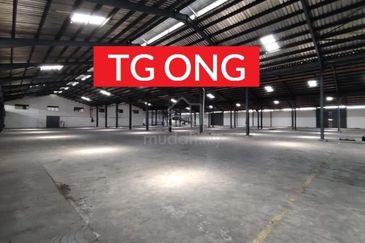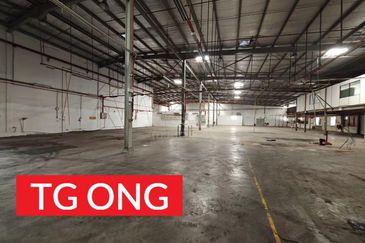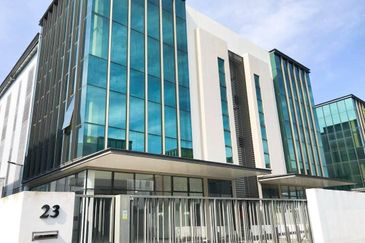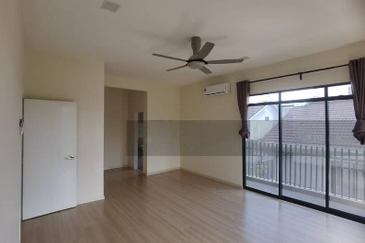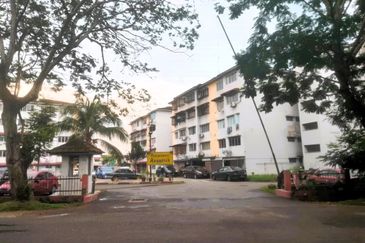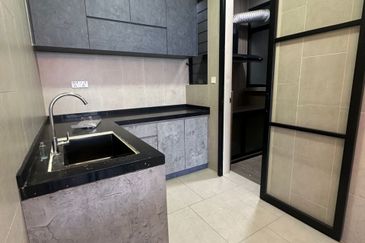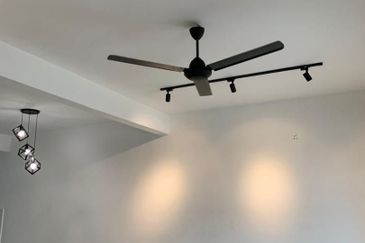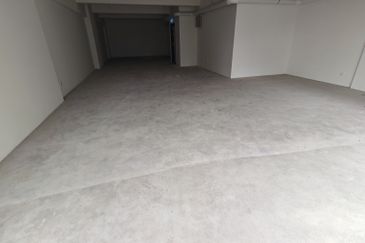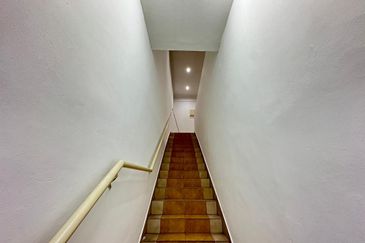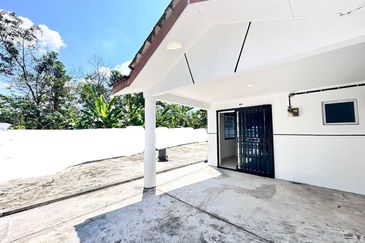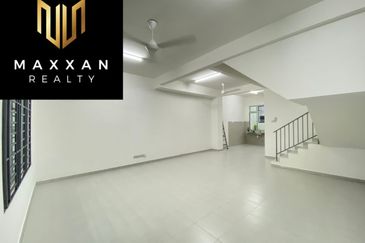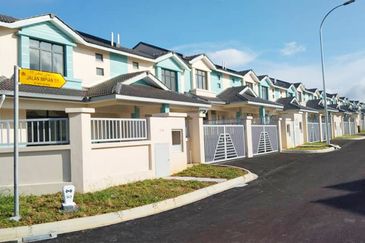
KUALA LUMPUR (Sept 14): Former prime minister Datuk Seri Najib Razak (pictured) and his son Datuk Nazifuddin Najib last night filed a motion to seek leave to appeal to the Federal Court, over last week's Court of Appeal decision, to dismiss their appeal over a summary judgement entered on them over their unpaid taxes of RM1.69 billion and RM37.64 million respectively.
The motion was filed by Messrs Shafee & Co.
Along with the motion, nine questions of law pertaining to income tax were posed before the apex court.
In civil cases, parties appealing have to seek leave (permission) from the apex court for the full merits of the appeal to be heard and decided on the questions of law.
It is not automatic for the merits in civil cases to be heard as permission or what is termed as leave has to be gained first.
A summary judgement that has been awarded to the Inland Revenue Board (IRB) in this case is where the court is of the view that the defendants have no triable issues with regard to their defence, and if it were to proceed in a full trial, it would have the effect of delaying a judgement entered on the defendants.
The nine questions are:
- Whether Section 106(3) of the Income Tax Act 1967 contravenes Article 121 of the Federal Constitution;
- Whether Section 106(3) of the Income Tax Act 1967 is unconstitutional and/or ultra vires as it usurps the judicial power of this court guaranteed by Article 121 of the Federal Constitution;
- Whether, by reason of Sections 103 and 106(3) of the Income Tax Act 1967, this court is wholly prevented from considering whether or not there are triable issues and/or some other reason warranting a trial (within the meaning of Order 14 Rule 1 and Order 14 Rule 3 of the Rules of Court 2012), before deciding whether or not to give judgement in favour of the plaintiff, despite the fundamental liberties, rights and powers enshrined in, inter alia, Articles 5, 8 and 121 of the Constitution.
- Whether Article 121 of the Federal Constitution, which guarantees the judicial power of this court, is relevant in the determination of civil recovery proceedings in tax matters (including in summary judgement proceedings therein);
- Whether Order 14 Rule 3 of the Rules of Court 2012, which provides that a summary judgement application may be dismissed if a defendant can show “some other reason” for a trial to be held, applies in civil recovery proceedings in tax matters;
- Whether in instances of manifest and obvious errors in calculation of a tax assessment, a court is entitled by virtue of its inherent and judicial powers to consider a defendant’s defence of merit to dismiss or set aside an application for summary judgement by a plaintiff and order full trial on the matter;
- Whether the judicial power of the federation that is vested in the High Court, Court of Appeal and Federal Court may be suspended and/or abrogated in a tax recovery suit filed under Section 106(1) of the Income Tax Act 1967 on the basis of Section 106(3) of the same Act;
- Whether the judicial power of the federation vested in the High Court, the Court of Appeal and Federal Court may be suspended and/or abrogated in a tax recovery suit filed under Section 106(1) of the Income Tax Act 1967 on the grounds that an appeal to the Special Commissioner of Income Tax (SCIT) has been filed under Section 99 of the same Act: and
- Whether a defendant’s defence as to the plaintiff’s conduct of bad faith, mala fide, oppression, unconscionability, irresponsibility, unreasonableness and/or abuse of process falls within the scope of Section 106(3) of the Income Tax Act 1967, and whether the courts are entitled to consider such a defence as a triable issue and/or some other reason warranting a trial in the context of civil recovery proceedings in tax matters (including in summary judgement proceedings therein).
Section 106 (3) of the Income Tax Act stipulates that the court shall not entertain any plea that the amount of tax sought to be recovered is excessive, incorrectly assessed, under appeal or incorrectly increased.
Although the nine questions of law have been posed, the bench may decide to reduce the number of questions or even decide there are no merits for the appeal to be heard fully when the motion is heard by the Federal Court bench.
On Sept 9, a three-member bench led by Justice Datuk Abdul Karim Abdul Jalil dismissed Najib and Nazifuddin's appeal on the grounds there is no merit in the two appeals and no error in the judgement of the two High Court judges.
The Court of Appeal bench that also comprised Justices Datuk Vazeer Alam Mydin Meera and Datuk Supang Lian was unanimous in the decision and ordered Najib and Nazifuddin to pay RM10,000 costs each.
The court allowed a stay of its decision provided that the notice of appeal is filed by this week, and the lawyers did so by filing it last night.
Get the latest news @ www.EdgeProp.my
Subscribe to our Telegram channel for the latest stories and updates


